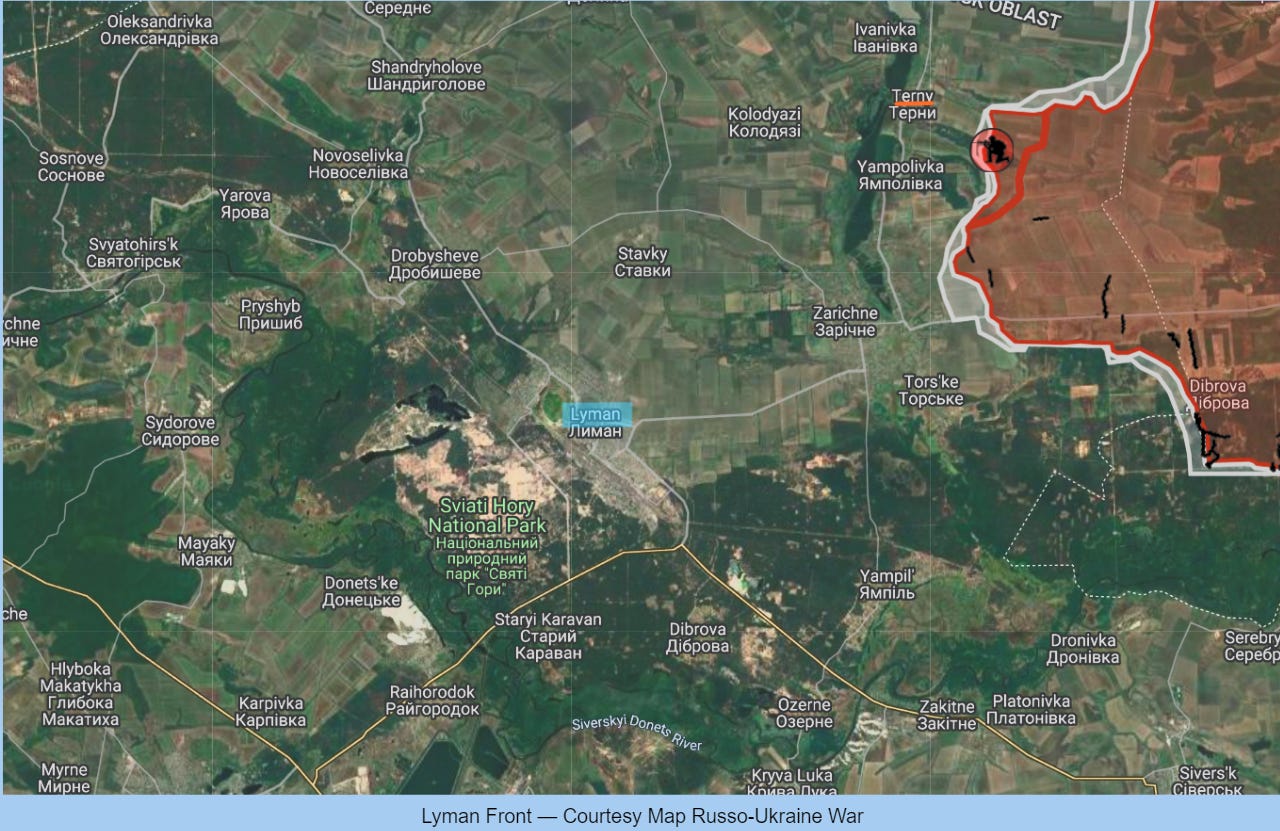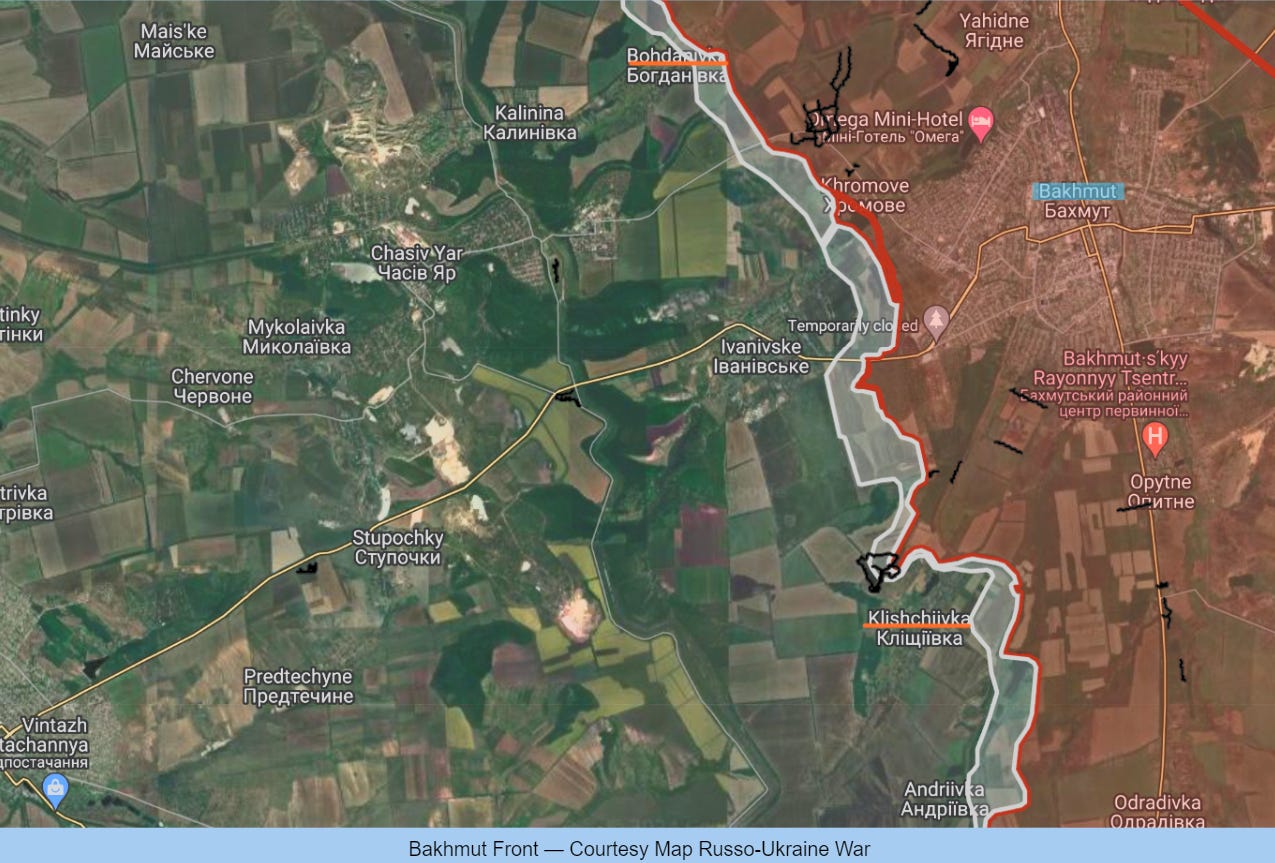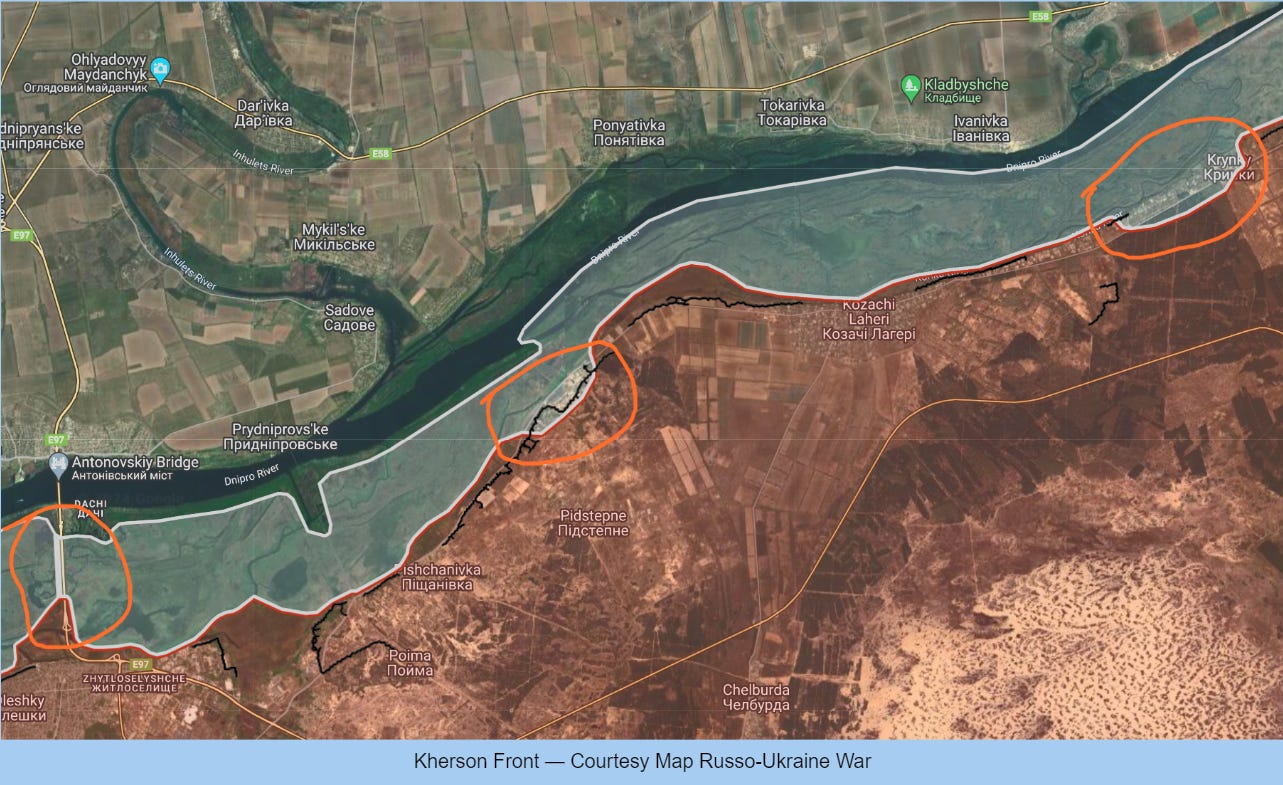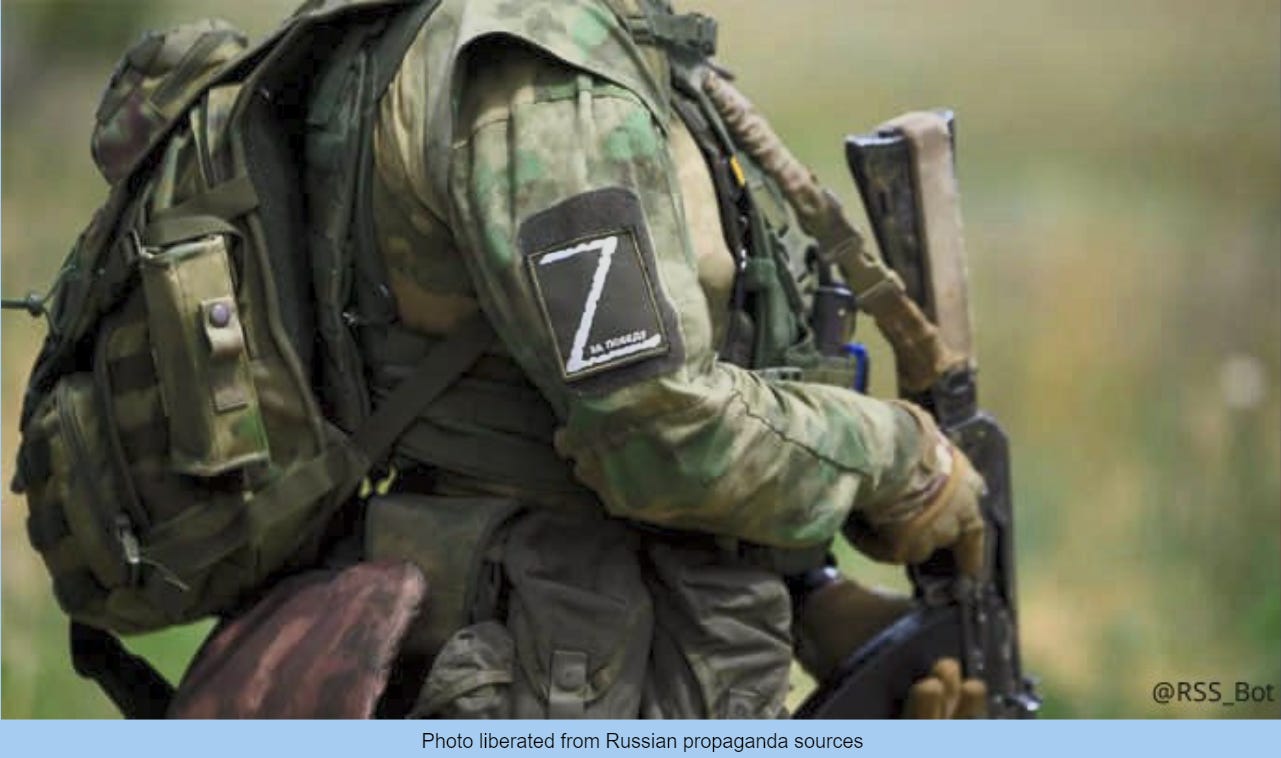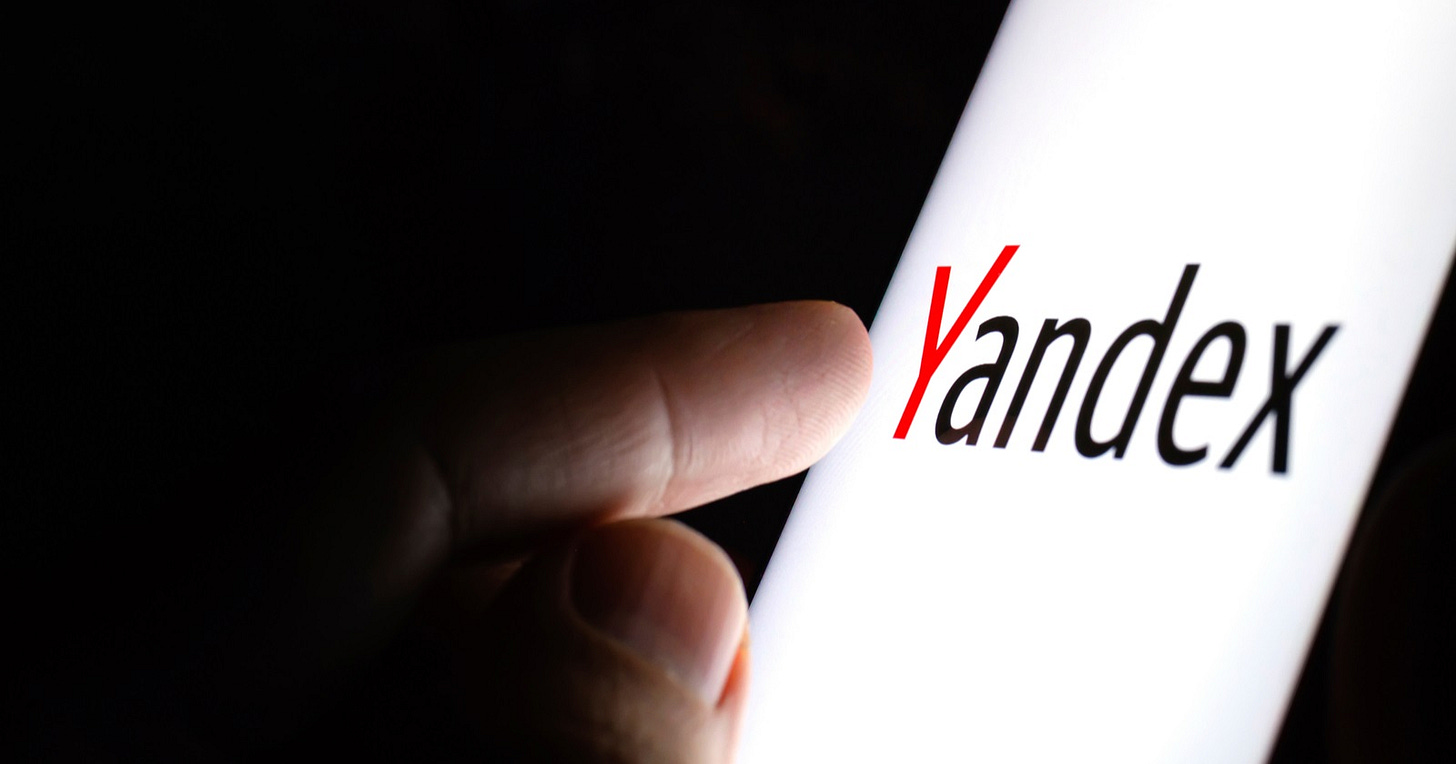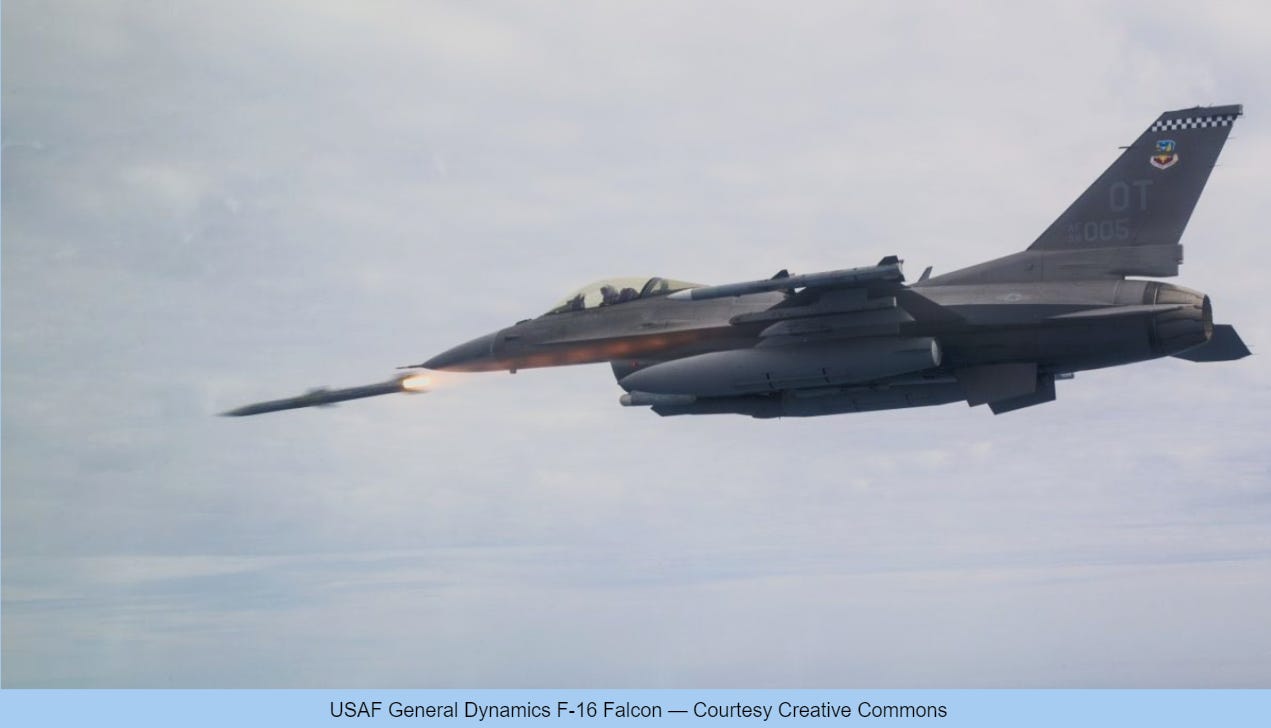Slava Ukraini! Since June 2023 I have provided a daily draft for the Ukraine War Brief Podcast collecting news from over 40 sources daily much of which ends up in the script. I will make this Draft available here for those who wish to keep up with events on a daily basis.
INSIDE UKRAINE
ALONG THE CONTACT LINE
GSAFU Morning Report
The General Staff of the Armed Forces of Ukraine in its situation update at 06:00 on Feb. 5 stated that it was day 712 of the full-scale invasion of the Russian Federation against Ukraine.
During the past day, 78 combat engagements took place. Over the past 24 hours, the enemy carried out 1 missile strike, 43 air strikes, and 51 MLRS attacks across the positions of our troops and settlements. As a result of the Russian attacks, unfortunately, there are dead and wounded among the civilian population. Destruction and damage to residential buildings and other civilian infrastructure.
At the same time, Ukrainian soldiers continue to inflict losses in manpower and equipment on the occupying troops, exhausting the enemy along the entire front line.
In the past 24 hours, the Ukrainian Air Force launched air strikes on 5 concentrations of the russian troops.
The Khortytsia operational-strategic group is responsible for the Kup’yans’k, Lyman, and Bakhmut axes, in the northeastern part of Ukraine.
Kup’yans’k axis: The enemy did not conduct any offensive (assault) operations.
Lyman axis: Ukrainian defenders repelled 3 attacks near Terny, (Donetsk oblast)
Bakhmut axis: Ukrainian forces repelled 3 attacks near Bohdanivka and Klishchiivka (Donetsk oblast)
The Tavria operational-strategic group is responsible for the Avdiivka, Mar’inka, Shaktars’ke, and Zaporizhzhia axes, in the central-eastern and southeastern part of Ukraine.
Avdiivka axis: Ukrainian defenders continue to hold back the enemy who keeps trying to encircle Avdiivka. AFU soldiers are standing their ground and inflicting major losses on the invaders. Ukrainian Defense Forces repelled 31 enemy attacks near Novobakhmutivka, Stepove and Avdiivka, plus 13 near Pervomais’ke and Nevel’s’ke (Donetsk oblast).
Avdiivka situation serious, street fighting erupts
The town of Avdiivka, north of Russian-occupied city of Donetsk, has remained a vital Ukrainian stronghold since 2014, attracting Russian forces and endangering their supply routes. Ukrainian army fortifications, trenches, and troops are heavily concentrated, with mined open terrain. Russia aims to encircle and isolate Ukrainian forces through north and south attacks.
Russian troops have entered the streets of Avdiivka in Donetsk Oblast, with urban combat breaking out in the city, according to prominent Ukrainian journalist Yuriy Butusov.
“Russian units dug in along a road north of Avdiivka. Enemy front positions now lie just about 1.5 km from the city entrance. Two weeks ago, Russians accessed two streets in the southern outskirts. Situation is critical,” Butusov wrote on Telegram.
Fellow Ukrainian military reporter Andriy Tsaplienko said Russian assault troops, taking advantage of cloudy weather hindering aerial reconnaissance, pushed into Avdiivka from the northeast. In his view, the occupiers outflanked Ukrainian battle positions and entrenched themselves among buildings.
“Just hundreds of meters separate Russians from Avdiivka’s main Ukrainian logistics route. But soldiers say if experienced infantry reserves arrive, the breach can still be sealed off, as happened weeks ago,” Tsaplienko posted on Telegram.
Mar’inka axis: Ukrainian Defense Forces continue to hold back the occupiers in the vicinities of Heorhiivka, and Novomykhailivka (Donetsk oblast). Troops repelled 14 attacks in that area.
Shakhtarske axis: The enemy did not conduct any offensive (assault) operations.
Zaporizhzhia axis: Ukrainian Defense Forces repelled 4 attacks north of Pryyutne (Zaporizhzhia oblast).
The Odesa operational-strategic group is responsible for Kherson, Qırım, (also known as Crimea) and the Black Sea.
Kherson axis: Ukrainian defenders continue to expand the bridgehead. Despite significant losses, the enemy does not abandon its attempts to dislodge Ukrainian troops from their positions. Over the past day, the enemy carried 7 unsuccessful assaults on the positions of the Ukrainian Defense Forces.
TEMPORARILY OCCUPIED TERRITORIES
Strike on Russian-held Lysychansk kills 28, including allegedly top-ranking Russian military
An attack on Russian-occupied Lysychansk in Luhansk Oblast killed 28 people, according to Moscow-installed authorities. They claimed the Ukrainian army shelled a city restaurant with HIMARS, and all the victims were civilians.
Ukraine has not officially commented on the incident. However, according to some Ukrainian sources, around 30 high-ranking Russian military officers were present in the restaurant at the time of the strike.
Meanwhile, Russian Foreign Ministry spokeswoman Maria Zakharova said Moscow expects “immediate unconditional condemnation” of this shelling from international organizations.
Lysychansk is located near the frontlines. Before the full-scale Russian invasion, around 111,000 people lived in the city.
THE HOME FRONT
Zelenskyy: “We need a reset, a change of leadership not only military”
Ukraine’s President Volodymyr Zelenskyy commented on media reports suggesting the potential dismissal of General Valery Zaluzhnyi, the commander of the Ukrainian Army, stating the need for a change in the country’s leadership direction.
In an interview with Tg1 Zelenskyy stated that Ukraine needs a change in the direction of its leadership, commenting on media reports of a possible dismissal of the commander of the Ukrainian Armed Forces, General Valery Zaluzhnyi.
“This is a question about the people who should lead Ukraine. surely a reset, a new beginning is necessary. […] I have in mind something serious, which does not concern a single person but the direction of the country’s leadership.
I am reflecting on this replacement, but you cannot say here we have replaced a single person,” Zelenskyy said. “If we want to win, we have to push everyone in the same direction, convinced of victory, we cannot be discouraged, drop our arms, we have to have the right positive energies… that’s why I’m talking about restart, replacement, I have something serious in mind, which is not about a single person but about the direction of the leadership of the country.”
— Volodymyr Zelenskyy, President of Ukraine
THE RUSSIAN WORLD
Russia forms new special convict unit
Ukraine’s National Resistance Center has reported that Russia has recruited convicts for the war against Ukraine into a new special assault unit called Storm Gladiator.
The NRC noted that this is a privileged semi-secret battalion consisting of several hundred convicts with combat experience, named "gladiators" in honour of a former general of the 58th Army who went by the alias "Spartak".
"The battalion is commanded by an ex-policeman convicted of a brutal murder. This unit selects people with a high level of physical fitness, experience of service in law enforcement agencies, and combat veterans," NRC reported.
Reportedly former mercenaries from Wagner Private Military Company and Kadyrovites from the Akhmat unit of the Special Rapid Response Unit (SOBR), part of Russia's National Guard, drill the "gladiators" at the training ground.
Aging Soviet Infrastructure Create Problems for Putin’s “Re-Election” Campaign
Story from The Financial Times
A man carrying a child over a river of boiling water from a burst pipe has become an unlikely hero in Russia, highlighting the country’s dangerous infrastructure failures at a time when Vladimir Putin is choreographing his re-election as president.
The man, Rza Rzaev, became a local celebrity in Novosibirsk in early January when pictures circulated on social media of him dressed in a dark coat, a grey hoodie and a hat meandering through dense clouds of steam with a flashlight and a child in his arms. He had hand-built an improvised bridge and carried people across the stream of hot water from a ruptured heating pipe that had flooded several streets of the Siberian city. More than a dozen people suffered burns and two were hospitalised.
A few days later, Rzaev received a transfer of Rbs70,000 ($770), more than the monthly average salary in the region, that locals raised on social media to thank him.
The Novosibirsk incident, along with other failures in communal heating leaving thousands of people in freezing flats in the dead of winter have shone a light on the urgent need of investment in the Soviet-era infrastructure as Putin’s war in Ukraine consumes a growing share of the Russian budget.
Russia’s poorly maintained public utilities also contrast with the image the Kremlin seeks to project as an energy superpower that has weaponised oil and gas exports and targeted Ukrainian heating and electricity networks since its full-scale invasion in 2022.
“I saw a group of kids being doused with boiling water from both sides . . . I am a father myself, and I couldn’t just leave them,” said Rza, who moved to Russia from Uzbekistan 13 years ago and still dreams of becoming a citizen.
Now in his late 40s, Rzaev works as a warehouse loader and carried about 20 people that day, stepping from the -30°C cold into boiling water and getting soaked in the process. When he returned to his apartment, he was unable to warm up, as there was no heating.
Other similar incidents this year have led authorities to introduce a state of emergency in several regions.
The most high-profile one occurred in Klimovsk, in the Moscow suburbs, where 170 buildings could not be heated for a week during temperatures that went as low as -20°C, affecting about 40,000 residents.
The week-long freeze for residents living just 50km away from the Kremlin prompted a rare intervention from Putin, who pledged to take the situation “under personal control”, ordering the nationalisation of the boiler house that caused it.
“The elections are not far off and the president needs to publicly demonstrate that he is a good tsar trying to bring order,” said Aleksandr Kynev, an independent political analyst.
The widespread communal failures have provided rare ammunition for public criticism of authorities in wartime Russia where dissent can lead to jail time.
“Cities are freezing. Who is guilty?” Boris Nadezhdin, a long-shot opposition presidential candidate, wrote on social media app Telegram. “The huge amounts of money that have been spent and planned for the special military operation could have been invested in improving the quality of life of my fellow citizens.”
Since announcing his run for president in December, Putin has taken steps to appear mindful of ordinary Russians’ concerns and act as if life is proceeding as normal despite the war. He has made appearances in far-flung places such as a greenhouse in the Chukotka, in the Arctic far east, and taken a reindeer ride in the tundra.
“Just a brilliant cucumber! Look, this is such a good, firm cucumber,” an employee told Putin, who touched the greenhouse’s vegetables approvingly.
Meanwhile, Russians continue to suffer from decaying Soviet-era infrastructure, which is poorly maintained and funded.
According to official estimates, between 45 per cent and 60 per cent of all utility networks need repair, with the figure increasing every year, as well as the number of accidents. In Chukotka, which Putin visited for the first time in his 23 years of rule, the figure reaches about 90 per cent.
“There is no data for the beginning of 2024 yet, but most likely we will see that there were more accidents than in 2023, both in number and seriousness,” said Ilya Dolmatov, an economist with Russia’s Higher School of Economics. He said the spike was likely caused by a confluence of “wear and tear” and a sudden drop in temperature.
Putin’s self-declared concern with the state of Russia’s infrastructure is not new: in his 2012 presidential campaign he pledged to “bring order to housing and communal services”.
One of the solutions many had high hopes for, allowing businesses to operate parts of utilities networks, has hardly improved things. And despite Putin’s pledge to keep the cost of bills low, many Russian families are struggling to pay. Russian household debts for public utilities have ballooned in recent years, nearing Rbs1tn ($11.2bn) in 2023.
About two-thirds of communal heating, electricity, gas, water and sewage services are funded by payments from households and businesses, and are administered by Rossiya, a bank controlled by Putin’s close friend Yuri Kovalchuk. The rest is covered by the state, with a higher proportion of the funding coming from regional budgets, often in deficit themselves.
According to Russia’s ministry of construction, more than Rbs9tn (or $100bn) is needed to modernise communal networks by 2030, the equivalent of about a quarter of all budget spending planned for the current year. But while defence spending has gone up in the past decade, reaching more than a third of the overall budget last year, funding for public utilities has only slowly increased over the same period to 2.2 per cent of the total expenditure in 2023 — far below the investment needed.
Heating issues are just the tip of the iceberg. Though Russia is the world’s top gas exporter, only 11 of its 83 administrative regions are fully connected to the gas pipeline network.
Sewage system ruptures are another common issue. One of the most notable incidents occurred in 2022 in Volgograd, formerly Stalingrad, where streets were flooded with human faeces.
“If we look at what the least popular governors were criticised for, it’s all about public services — icicles, snow not cleared, garbage not removed, cold flats, burst pipes,” said Kynev, the independent analyst.e investment needed.
Putin and his government, however, have so far succeeded in deflecting the blame, said Denis Volkov, the director of the Levada Center in Moscow, an independent polling group.
“People are dissatisfied with the state of communal services, but they perceive the situation as a chronic disease. When something breaks, it annoys them, but it does not come as a surprise.”
As expected, apathetic Russians do nothing about it.
Yandex, ‘Russia’s Google,’ Exits Russia In Fire Sale
(No pun intended). RFE/RL reports.
Under the agreement announced on February 5 by Yandex’s Netherlands-based corporate parent, a “purchaser consortium” that includes the company’s management, an investment fund linked to Russian oil giant LUKoil, and three other businessmen will take over Yandex’s operations inside Russia.
The Russian entity, meanwhile, takes over the vast bulk of the company’s revenue-generating businesses, including the country’s dominant search engine, and also major operations in things like online shopping, advertising, food delivery, taxis, maps, and other things.
The Dutch parent is expected to retain control of several non-Russian businesses, including operations in cloud computing, self-driving cars, and a number of patents and other intellectual property licenses.
The price takes into account a 50 percent discount mandated by law on the sale of assets of companies from "unfriendly countries" when they exit the local market.
“Since February 2022, the Yandex group and our team have faced exceptional challenges. We believe that we have found the best possible solution for our shareholders, our teams, and our users in these extraordinary circumstances,” Yandex’s board Chairman John Boynton said in a statement.
February 2022 is when Russia launched its full-scale invasion of Ukraine, which sparked the exit of dozens of international companies from their Russian operations.
Kremlin spokesman Dmitry Peskov welcomed news of the sale.
“Yandex is one of the economy’s national champions in high tech and one of the largest companies,” he told reporters. “It’s important for us that the company continues to work in the country.”
Yandex was a long-admired company, in and out of Russia, not only for its search-engine dominance but its innovations and fast-moving efforts to move into lucrative online businesses such as ride hailing and food delivery. Its shares, which traded on the U.S. Nasdaq exchange, were held by major Western institutional investors.
The announcement caps a tumultuous 18-month period since the Kremlin’s decision to launch its large-scale invasion of Ukraine. In the wake of the invasion, Russian lawmakers passed measures that amount to censorship of news and independent information about the war, which the Kremlin euphemistically calls a “special military operation.”
In the weeks that followed, Yandex, whose search engine and news portals were a major source of information for Russians, came under pressure to skew search results, and direct readers to only specified news outlets.
Two board members resigned; several top executives departed, along with thousands of employees; and the company’s American Depositary Receipts, traded on the U.S. Nasdaq exchange, were frozen. The company decided to sell its news and entertainment channels.
Months later, Yandex announced a plan for a wholesale reorganization, with a possible exit from Russia. Aleksei Kudrin, a former finance minister and longtime Kremlin confidant viewed as a “liberal” policymaker, was brought on to help negotiate the restructuring.
But the talks faltered as reports emerged that powerful Kremlin-linked oligarchs were in the running to take it over, and Yandex’s board feared Western sanctions imposed after the Russian invasion might pose legal problems. Kudrin himself ended up being sanctioned by the United States, while the company’s co-founder, Arkady Volozh, who resigned months after the invasion, was hit with European Union sanctions.
The negotiations were complicated further last August when Volozh publicly criticized the Ukraine war, calling it “barbaric.” Aside from LUKoil and the stake to be held by management, the other three Russian members of the “purchaser consortium” are relatively unknown. One previously was an executive at Gazprom, the state-controlled natural gas giant. None of the buyers are “a target of, or owned or controlled by a target of, sanctions in the U.S., EU, U.K., or Switzerland,” the company said.
In A Throwback to the Tsar’s Okhrana, GRU “Illegals” Infiltrated Russian Domestic Dissidents
Russia’s most notorious assassination and sabotage squad has infiltrated a host of Russian civil society organizations, The Insider has discovered. GRU Unit 29155, responsible for poisonings and terror attacks across Europe, has also been spying on opponents of Russian President Vladimir Putin’s regime, both inside Russia and abroad, by posing as human rights activists, documentarians, and trade journalists. Their targets have included venerable NGOs such as the Free Russia Forum, founded by Chess Grandmaster Garry Kasparov; the Sakharov Center, named after Soviet physicist and Nobel Peace Prize laureate Andrei Sakharov; and Memorial, an organization set up during Mikhail Gorbachev’s glasnost to chronicle the human rights abuses and high crimes of the Stalinist period.
In a lengthy exposé as part of its series uncovering Russian spies, The Insider learned that three Russian military intelligence officers posed as human rights activists, documentary filmmakers, and journalists to infiltrate dissident groups inside Russia. The GRU has no known domestic mandate in Russia, making the find even more disturbing. You can read the fascinating story in our separate post about the three trained assassins.
NEWS WORLDWIDE
Belgium presents plans to use Russian assets for G7 funding of Ukraine
Western governments are drawing up plans to issue debt to help fund Ukraine, using Russian assets as a backstop for the repayment in a move that would force Moscow to start paying for its invasion. The Financial Times reports.
Under the plans, Kyiv’s allies could raise debt to fund the war-torn country. The coalition supporting Ukraine would demand that Russia repays the debt and, if it fails to do so, would seize frozen Russian sovereign assets instead, according to officials familiar with the discussions.
The Belgian government has circulated the plans to G7 nations, several officials with knowledge of the proposals confirmed. Officials from two G7 nations said that it was now a leading option to unlock the frozen funds for Ukraine.
Structuring the support in this way would allow the coalition to raise funds for Ukraine without needing to immediately resolve legal questions about other nations’ grounds for the seizure of Russian sovereign assets.
Washington has been pushing its allies to find ways to seize the €260bn of Russian central bank assets that have been immobilised abroad in response to Vladimir Putin’s full-scale invasion of Ukraine in 2022. Around €191bn of Moscow’s assets are held in Euroclear, a Brussels-based securities depository.
“Using the assets as collateral to raise debt is an attempt to find a compromise between different viewpoints around the table, both within the EU and . . . the G7,” the official said.
MILITARY & TECH
Netherlands to send six additional F-16 fighter jets to Ukraine
This latest commitment increases the total number of aircraft pledged to Ukraine by the Netherlands to 24.
On 5 February, Dutch Defense Minister Kajsa Ollongren announced that the Netherlands is preparing to dispatch six more F-16 fighter jets to Ukraine. This latest commitment increases the total number of aircraft pledged to Ukraine by the Netherlands to 24.
Ollongren emphasized the necessity of Ukraine’s aerial advantage to counter Russian aggression, highlighting the strategic importance of bolstering Ukraine’s air capabilities.
The Netherlands had previously announced plans to send 18 F-16s to Romania to train Ukrainian pilots, reflecting a coordinated effort to enhance Ukraine’s defensive posture.
With a total of 42 F-16s in its arsenal and transitioning to the more advanced F-35s, the Netherlands is in a position to support Ukraine while updating its own military capabilities. Ollongren previously mentioned that nearly all Dutch F-16s would be handed over to Ukraine, except those retained for training Ukrainian pilots.
That’s it for today’s Draft folks if you would like to keep up with events in Ukraine daily please consider subscribing, its free!
Feel free to share this update with your friends. Heroyam Slava!







